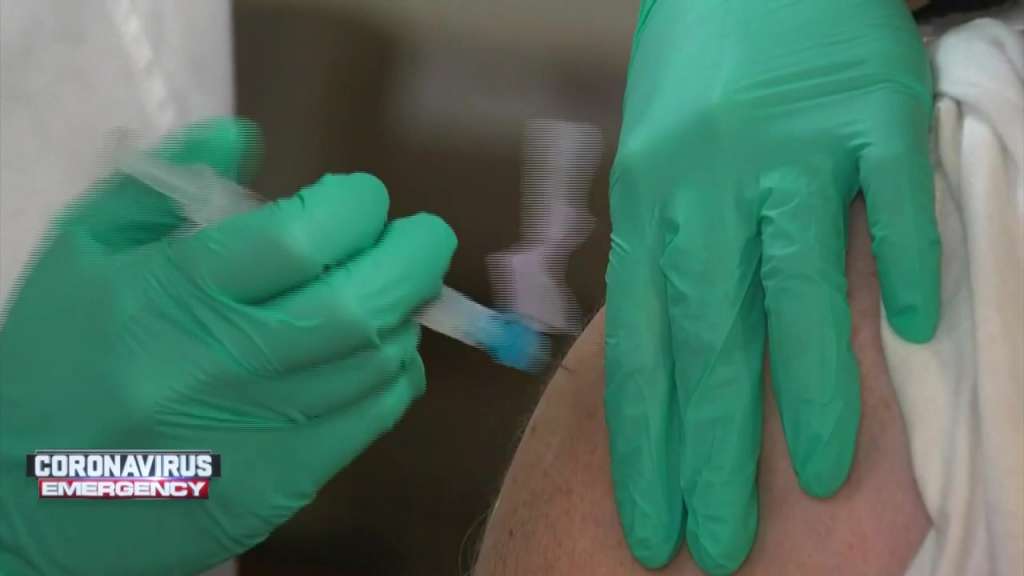As the pool of people eligible to be vaccinated against COVID-19 swells, Public Health Commissioner Monica Bharel can now tap into the network of students in Massachusetts training to be pharmacists or physician assistants to deliver the shots.
The change to the Department of Public Health’s emergency rules for vaccine administration expands the group of eligible providers beyond medical and nursing students if the commissioner determines that there are or will be insufficient health care professionals available for timely vaccine administration.
The amendment, which was lobbied for by the Massachusetts Association of Physician Assistants, was adopted Wednesday by the Public Health Council, and gives Bharel the authority to turn to any student enrolled in a accredited program for licensure as a health care professional to administer vaccines.
“We’re going to need a lot of individuals and to have them properly trained to immunize. I think this is a great idea,” said Dr. Michael Kneeland, a council member and a dean at UMass Medical School.
Kneeland said UMass Medical students have already been trained and are administering shots, and predicted that students will become critical to the state’s vaccination efforts as Massachusetts moves into the second and third phases of distribution, which will eventually include the general public.
The expansion of the state’s vaccination program comes as public health officials announced that a second person tested positive Tuesday in Massachusetts for the more contagious variant of COVID-19 first detected in the United Kingdom.
The presence of the new strain highlights the race public health officials are in against the virus to vaccinate the public against the deadly disease, which has infected over 450,000 people in Massachusetts and killed nearly 13,500.
The state has already made vaccine available to front-line health care workers, nursing homes residents, and first responders, and this week began to roll out the vaccines in congregate care facilities, including prisons and shelters.
The newest case of the COVID-19 strain, known as B.1.1.7, was detected Tuesday by the Massachusetts Public Health Laboratory in a male in his 20s from Worcester County, according to the Department of Public Health.
It follows the first known case of the new strain in Massachusetts found over the weekend in a female resident of Boston in her 20s who had visited the United Kingdom. Bharel disclosed the second case at Wednesday’s virtual meeting of the Public Health Council.
“The public health measures for these new variants remain the same,” Bharel said, urging people to continue to wear a mask in public, to maintain social distance, to continue with proper hygiene and to stay home if feeling sick and get tested if experiencing symptoms.
Bharel said that as of Monday 746,250 doses of COVID-19 vaccine had been allocated to Massachusetts and 337,333 doses have been administered. She said the vaccine, which is believed to be effective on the new strain of COVID-19, is the “light at the end of the tunnel” of the pandemic.
With President-elect Joe Biden taking the office on Wednesday and promising not to hold back on the delivery of any doses to states, Bharel said Massachusetts does not currently delay the distribution of second doses of the Pfizer or Moderna vaccine to health care facilities as they come in, and will watch to see how vaccine deliveries might change.
“This is the most intensive, most expansive vaccine rollout in our nation’s history,” Bharel said, adding, “I’m hopeful that the distribution of COVID-19 vaccine will be the light at the end of the tunnel.”
The Baker administration announced on Tuesday that Fenway Park in February would join Gillette Stadium as a site for mass vaccinations, able to administer up to 500 doses a day to start and eventually 1,000 or more shots daily. At full capacity, the Gillette Stadium facility is expected to be able to service up to 5,000 patients a day.
Dr. Michele David, a council member and chief of clinical quality and patient safety at MIT Medical, asked whether any mass vaccination sites would be located in communities of color, which have been hardest hit by the pandemic.
Bharel said the number and location of mass vaccination sites are “evolving based on availability of large areas where these can be done.”
“We are working continuously with our communities to provide sites that are accessible and equitably distributed,” Bharel said.
Bharel also told David that DPH is doing its best to help facilities like hers at MIT prepare for the start of Phase II, which will initially include vaccinations for people over 75 or those with two or more health conditions that put them at a high risk for COVID-19 complications.
Phase II is scheduled to begin in February, but Bharel said the federal distribution of vaccine has made it difficult to offer more precise guidance for when and how those doses should arrive and be distributed.
“We share in the frustration of only being informed what doses will come to Massachusetts a week in advance so it’s very hard for all of us together to plan far ahead,” Bharel said.
The DPH is also planning to roll out a public awareness campaign next month that will attempt to address any hesitancy some people might be feeling about getting vaccinated.
(Copyright (c) 2024 State House News Service.

